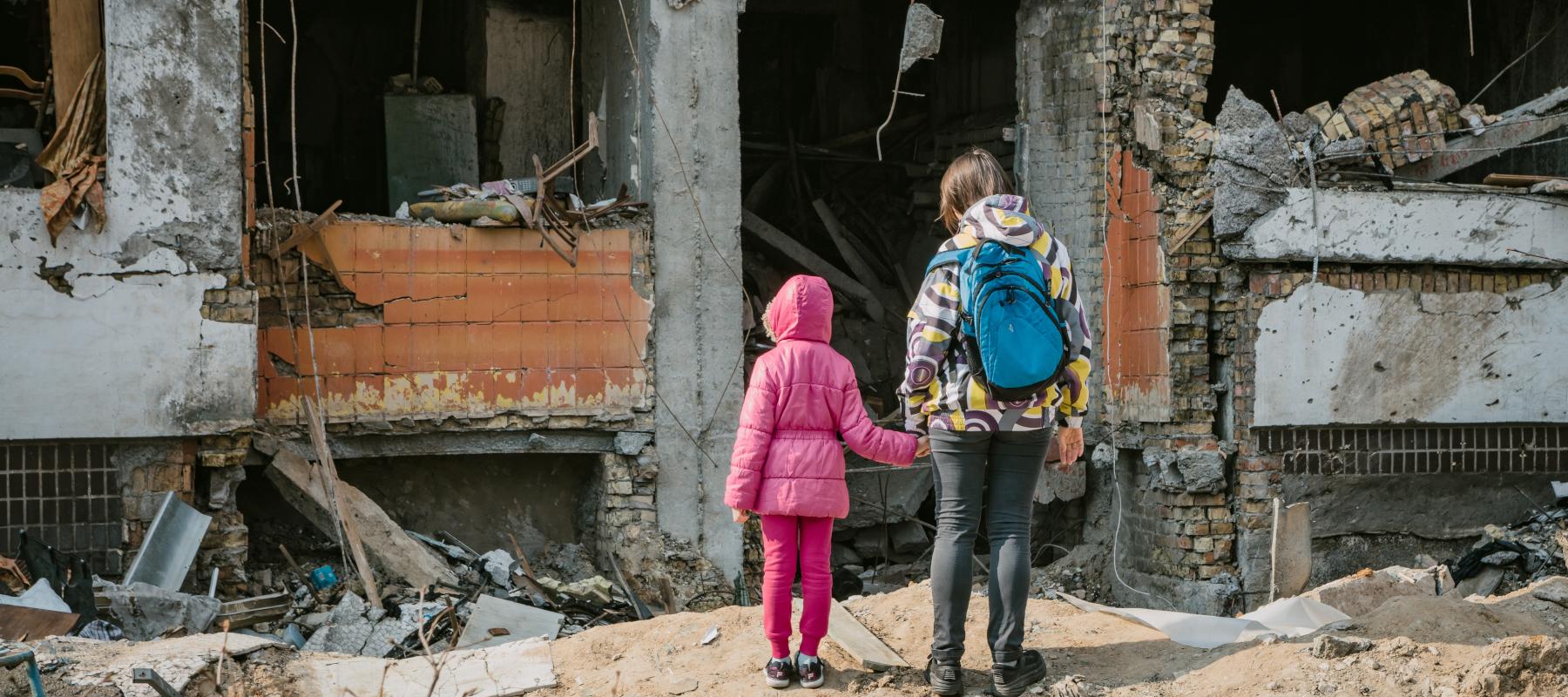Addressing Ukraine's Post-War Recovery Challenges
Associated people
The project "RE: BUILDING UKRAINE FOR ALL: Inclusive REcovery, REsilient Ukraine," led by Professor Freya Baetens, Dr. Ievgeniia Kopytsia, and Dr. Daryna Dvornichenko, has successfully concluded, marking an important milestone in addressing Ukraine's post-war recovery challenges.
The project's outcomes include an enhanced understanding of inclusive recovery practices, concrete policy recommendations, and increased representation of diverse Ukrainian voices in recovery discussions.

A key component of the project was the production of an informative podcast series, now available on the Oxford Human Rights Hub website. This podcast series examines inclusive recovery and resilience-building in Ukraine, focusing on energy sector transformations, environmental recovery, economic revitalization, and gender-responsive approaches, with expert insights on balancing immediate needs and long-term sustainability while ensuring inclusivity for diverse groups including veterans, people with disabilities, and women in post-war reconstruction efforts.
The project culminated in a workshop that brought together approximately 70 participants, both on-site and online. This collaborative event facilitated important discussions on key recovery strategies, ensuring a wide range of voices were heard.
More information about the workshop and its outcomes can be found on the project webpages.
A comprehensive policy paper, a central output of the project, has been published. This document outlines evidence-based recommendations for the Ukrainian government and international partners, focusing on integrating inclusive practices into recovery efforts and supporting vulnerable groups.
The project's main objective was to address how Ukrainian society can recover from the war, not merely by rebuilding what was destroyed, but by reforming and improving previously existing structures.

Collaboration with the Heinrich Böll Foundation as a policy partner, along with project partners from Ukraine, UK, USA, and Germany, ensured a multi-faceted approach to addressing Ukraine's recovery challenges.
Looking ahead, the project findings are positioned to make a contribution to the upcoming Ukraine Recovery Conference 2025 in Italy. The research team hopes that their work will help develop the groundwork for sustainable reconstruction processes in Ukraine.



